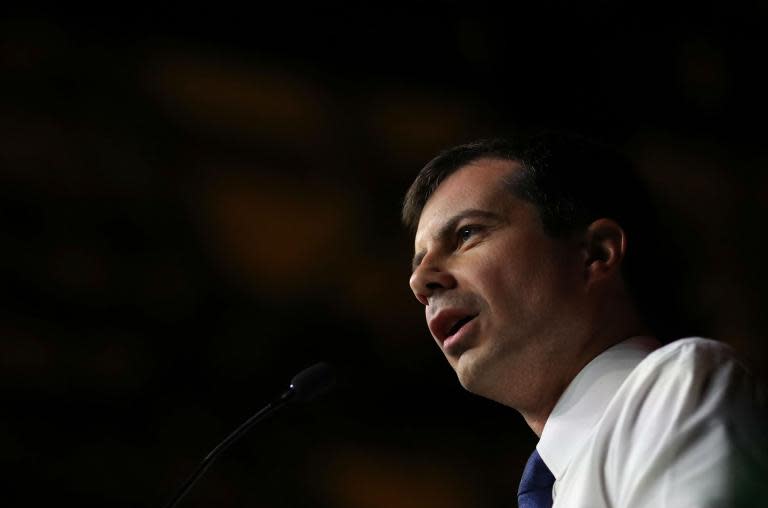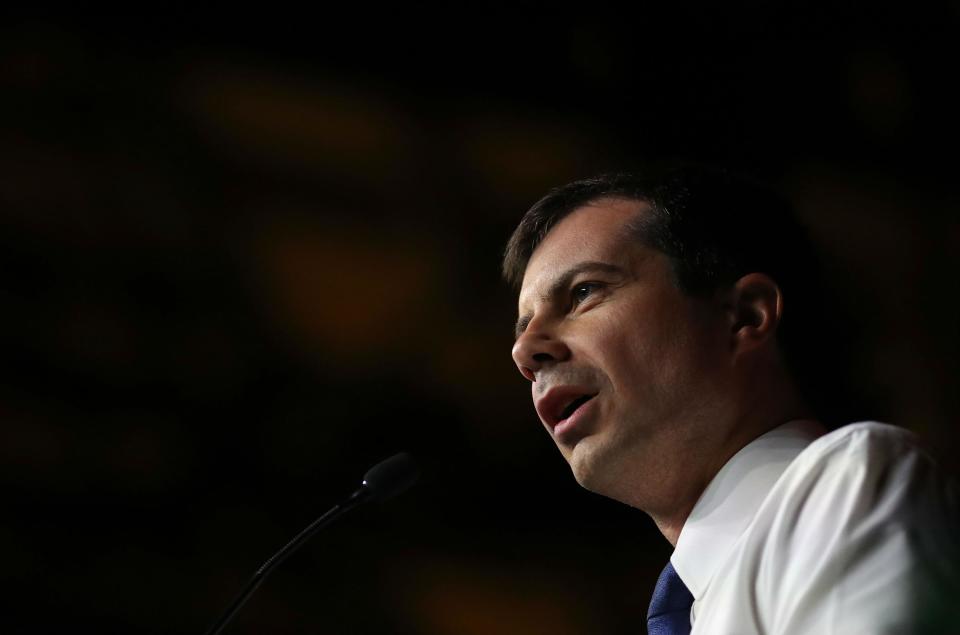As a queer black man, I want the inevitable obituary of the Buttigieg 2020 campaign to be honest
Pete Buttigieg was always due for a reckoning with black voters. That’s what always made talk of his presidency — at least one set to begin on 20 January 2021 — more hypothetical than plausible. The signs were always there, but his champions never paid much attention.
In 2012, a then 29-year-old Buttigieg leaped into controversy a mere 13 weeks into his mayorship of South Bend, Indiana when he fired Darryl Boykins, the city’s first black police chief. Boykins was under scrutiny from federal prosecutors following allegations of improperly taping phone calls of senior white officers said to have used racist language — including about him. No action was taken against the police officers and whatever language was used remains a mystery due to Buttigieg’s refusal to release the tapes.
Buttigieg wrote that incident “affected my relationship with the African-American community in particular for years to come” in his political memoir, Shortest Way Home.
It does not help that Sound Bend’s police department reportedly paid out over $1.3m in brutality and civil rights settlements during the first five years Buttigieg served in office. His failure to heed activists’ and local officials’ calls for an actual citizen’s review board doesn’t help either.
Then there’s the fact that Buttigieg appointed two white police chiefs following Boykins’ tenure. Consider the miniscule minority representation in the South Bend police department and you’ll realize how significant this is — the department is reportedly only 5 per cent black and 5 per cent Latinx. Derek Dieter, a retired South Bend police officer and former City Council president, who is white, told the New York Times in April, “Over the years we have had probably 20 minority officers who left their jobs.”
Just this week, Dieter told CNN that Buttigieg took a “passive approach” with the police department and added: “Qualified minority officers leave, because there is no avenue of advancement or promotion."
And now Buttigieg the media darling is facing a crisis in his city that had been building for years – one very much of his own making. South Bend police claim Sergeant Ryan O’Neill was responding to reports of cars being burglarized when he shot Eric Jack Logan in the parking lot of an apartment complex on June 16th. O’Neill claims Logan threatened him with a knife, but O’Neill didn’t turn on his body camera as required — leaving black residents largely skeptical about O’Neill’s side of the story.
At a “Justice for South Bend” rally held last Friday, Shirley Newbill, Eric’s mother, pressed on Buttigieg and the city to take action on behalf of her son. “I have been here all my life, and you have not done a damn thing about me or my son or none of these people out here,” Newbill said. “It’s time for you to do something.”
Then there was an exchange with another woman that ended with her declaring to Buttigieg, “You're running for president and you want Black people to vote for you? That's not going to happen."
Buttigieg was greeted with even more fury at a town hall held on Sunday with South Bend residents.
In light of this incident, Buttigieg’s original failure to build trust with the black community in the handling of South Bend’s first black police chief was revisited. Speaking with the Los Angeles Times, Blu Casey, 23, an activist and recording artist, told Matt Pearce that Buttigieg “had a chance to make a stand and didn’t do it. He never stepped up and became the leader.”
In a meeting with journalists following the town hall, Pearce recalls Buttigieg explaining: “You can sense the pain not only around this incident, but around our history, and not only around our history as a city, but what’s happening everywhere that so many black Americans have felt in relation to the police.”
That is part of it, yes, but Buttigieg’s failure to address these concerns in his own backyard speak to a larger collective lack of focus on the specific plights facing black people across the country. For all Buttigieg’s list of accomplishments — the commercial revival of their downtown area, the addition of 12,000 jobs over his two terms, the demolition or repair of over 1,000 decrepit houses designed to combat urban blight — they each come with an asterisk for black folks living in South Bend.
The overall poverty rate has declined since Buttigieg took office, but it remains twice as high for black people in the area as it does for black people nationwide. According to the Eviction Lab at Princeton University, eviction rates are among the highest of the nation. As for those plans to combat urban blight, area officials argued that they disproportionately displaced black residents. (His troubles with tackling the homelessness situation were just examined in the New Yorker).
Reports this primary season have suggested Buttigieg enjoyed a mixed reaction at best from black South Bend residents. I’ve not heard anyone say he is racist, but cluelessness, naïveté, and a general lack of will to recognize the role racism plays in the lives of some of your residents are no less dangerous for black people in South Bend and black people everywhere else in America.
It may not have been an artful statement but Barney Frank, who became the first openly gay Congress member in 1987, had a point when he told the Boston Globe in May that Mayor Pete’s “being gay is an advantage” because it “gives people a chance to affirm their lack of prejudice.”
One of my worries is that when the obituary of the Buttigieg 2020 campaign is written, it will speak of his failure to make inroads with the black community but not within proper context. Already, there have been many in the media asking if the purported homophobia rampaging the black community will be to blame.
As a queer black man who uses Google to access data to dispel falsehoods for sport, that bothers me for a litany of reasons beyond the LGBTQ nightmare that is the Trump-Pence administration and the white electorate that made it so.
Make no mistake: Pete Buttigieg’s failure will not be due to black homophobia. Instead, it will be rooted in him following the time-honored tradition of being a white politician who ignored the black community by and large until their ambitions called for direct contact.
It’s not our fault that thus far, he’s shown himself to be ill-prepared for the moment.

 Yahoo News
Yahoo News 

